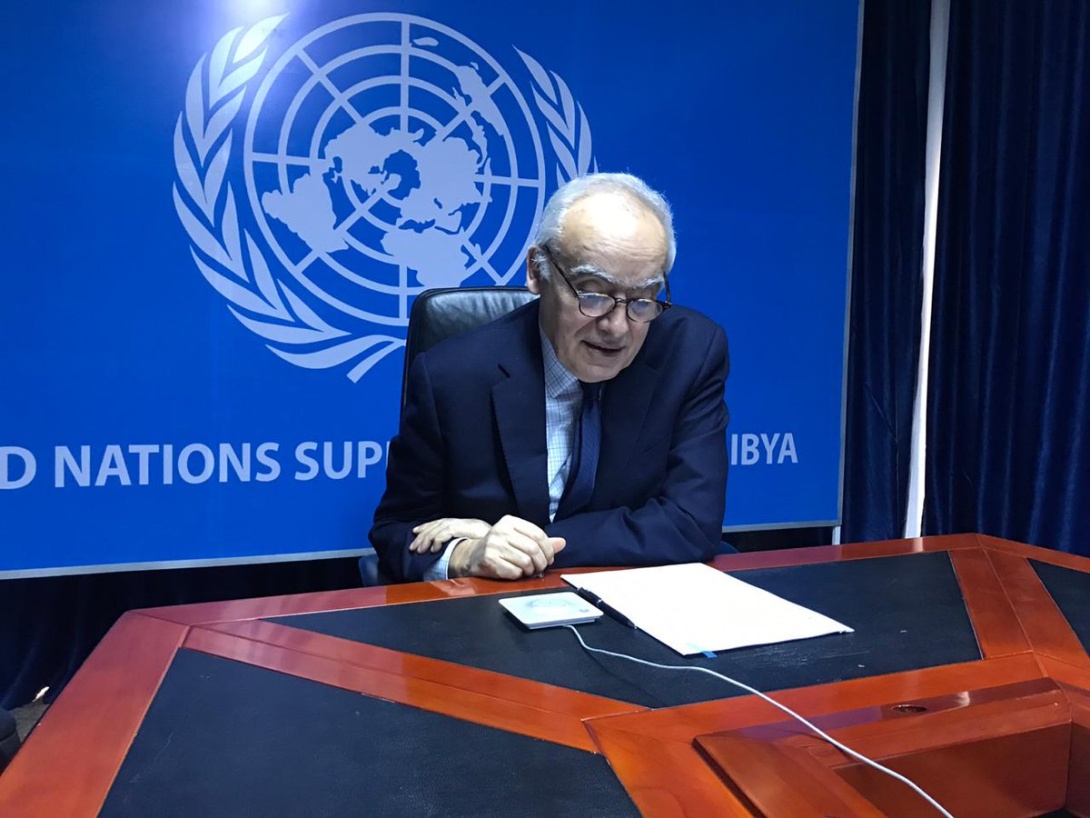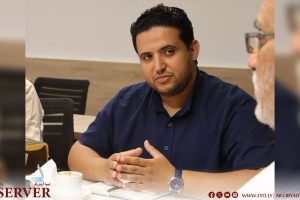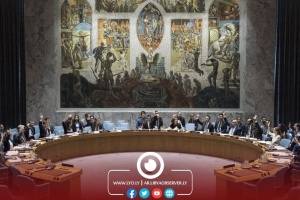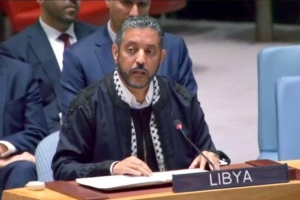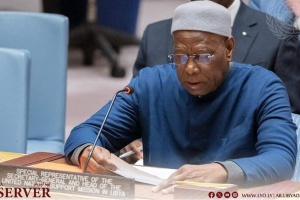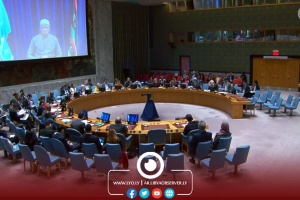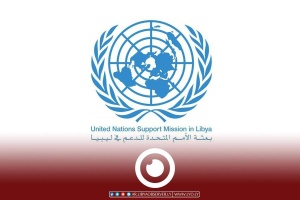The Head of the UN Support Mission in Libya (UNSMIL) briefed the UN Security Council Friday via video conference in Tripoli about the status quo in Libya.
Salame spoke to the UN Security Council about his first visit to the southern region in Libya saying: “I heard first-hand from citizens who spoke movingly about the terrible hardships they endure."
He also said that the southerners in Libya are suffering from the brutality of the ISIS terrorist fighters to what he described as lakes of sewage in the region due to the lack of investment in basic public infrastructure to foreign mercenaries who slip through porous borders and then common criminals that prey upon citizens and migrants.
"Inaction leads to attacks against water pipelines and oil facilities, which hurt Libya’s slowly recovering economy and leave citizens vulnerable to armed violence." Salame added.
He indicated that wherever there is fighting, parties must take all measures to protect civilians and civilian facilities and adhere to International Humanitarian Law and Human Rights Law or face the consequences.
He added that while things are looking up on some economic fronts, such as long queues of people standing for days outside of ATMs to get a meager fraction of their assets is now "behind us."
He indicated that rising oil production has driven revenue, adding that the disturbances in south Libya over the lack of services have recently slowed oil production in Libya
“It is essential that such grievances be addressed without resorting to threatening the national economy." He stressed.
UNSMIL has been returned “in full force”, he said, pointing to the reopening of the Benghazi office this month and the opening of an office in the South later this year, stating: “It is vital that we are here, in Libya”.
He also said that the National Conference in Libya is vital in tackling the country’s underlying dysfunctionalities, adding that he sees it as a patriotic concern that transcends partisan and personal interests, telling the UN Security Council to support it.
“The political deadlock in Libya has been underpinned by a complex web of narrow interests, a broken legal framework and the pillaging of Libya s great wealth. Only Libyans themselves can plot a path out of this malaise, towards stability and prosperity." Salame added.

